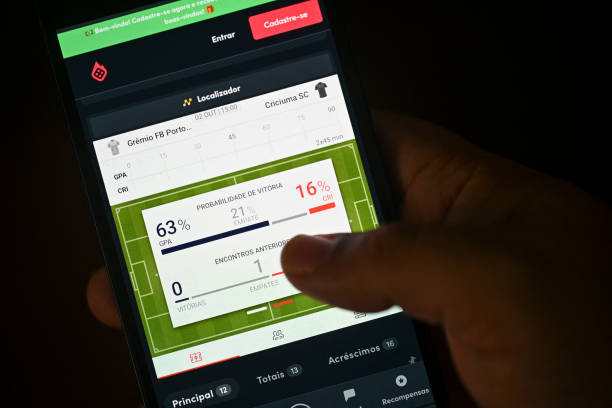
Introduction
Betting exchanges have revolutionized the world of sports betting, offering bettors more control, better odds, and unique trading opportunities. Unlike traditional sportsbooks, bet exchanges allow users to bet against each other rather than against a bookmaker. This model provides a more dynamic and flexible betting environment, making it increasingly popular among seasoned punters.
This comprehensive guide will delve into what betting exchanges are, how they work, their advantages, strategies for maximizing profits, and key platforms where you can start your journey.
What is a Betting Exchange?
A betting exchange is an online marketplace where users can place bets against one another rather than against a bookmaker. The exchange itself acts as an intermediary, charging a small commission on winning bets.
Instead of fixed odds set by a bookmaker, the odds on a betting exchange fluctuate based on supply and demand, much like a stock market. Users can either back (bet for) or lay (bet against) a particular outcome, creating a unique two-way betting experience.

How Betting Exchanges Work
Backing and Laying Explained
- Backing: This is the traditional form of betting where you wager on an event to happen. For example, if you back Manchester United to win, you win the bet if they win the match.
- Laying: This is where you take on the role of the bookmaker by betting against an event. If you lay Manchester United to win, you are betting that they will either draw or lose.
Matching Bets
- When one user places a back bet, another user must match it with a lay bet. Only once the two bets are matched does the bet become active.
- Unmatched bets remain on the exchange until a suitable match is found, or the user cancels the bet.
Commission Fees
- Betting exchanges make money by charging a commission on net winnings, usually ranging between 2% and 5% depending on the platform.
SUGGESTED FOR YOU
Mastering Football Betting: Top 5 Trends to Elevate Your Strategy in 2025
Winning Big: 5 Proven Strategies for Betting on Basketball Underdogs
Advantages of Betting Exchanges
- Better Odds
- Since there is no bookmaker margin, odds are often more competitive than those offered by traditional sportsbooks.
- Ability to Lay Bets
- Users can act as the bookmaker, which opens up new profit opportunities by betting against certain outcomes.
- More Control Over Betting
- Bettors can set their own odds, trade bets in real-time, and even close out bets before an event ends to lock in profits or minimize losses.
- No Betting Restrictions
- Unlike traditional sportsbooks, betting exchanges do not limit or ban winning players.
- In-Play Betting Opportunities
- Exchanges offer real-time betting, allowing users to adjust their positions based on live game action.

Betting Exchange Strategies
1. Trading for Profit
Just like stock trading, bettors can buy (back) and sell (lay) bets at different odds to secure guaranteed profits. If odds drift in your favor, you can hedge your position and lock in winnings before an event concludes.
2. Scalping
Scalping involves taking small, quick profits by placing back and lay bets at slightly different odds repeatedly during an event. This works well in highly liquid markets where odds fluctuate frequently.
3. Hedging Bets
Hedging allows bettors to minimize risk by placing bets on multiple outcomes. If your initial bet’s odds shorten, you can place an opposing bet to guarantee profit or cut losses.
4. Laying the Favorite
One popular strategy is to lay the favorite in a market where you believe their chances of winning are overestimated. This can be profitable when the underdog has a better chance than odds suggest.
5. Utilizing Free Bets & Promotions
Some exchanges offer promotions such as free bets or commission discounts. Taking advantage of these can increase overall profitability.

Best Betting Exchanges
1. Betfair
- The largest and most popular betting exchange in the world.
- High liquidity, meaning it’s easier to match bets.
- Competitive commission rates.
2. Smarkets
- Low commission structure (as low as 2%).
- User-friendly interface and high market liquidity.
3. Matchbook
- Competitive odds with lower commission rates.
- Strong focus on major sports markets.
4. Betdaq
- Smaller than Betfair but still offers solid liquidity.
- Lower commission rates to attract more users.
Common Mistakes to Avoid
- Not Understanding Market Liquidity
- Low liquidity markets can make it difficult to match bets, leading to poor execution.
- Ignoring Commission Fees
- Always account for commissions when calculating potential profits.
- Placing Unmatched Bets
- If your odds are too high or too low, your bets may not get matched, leading to missed opportunities.
- Chasing Losses
- Always have a solid strategy and bankroll management plan to avoid emotional betting.
- Not Using Cash Out Effectively
- Failing to cash out at the right moment can result in lost profits or higher losses.
CHECK OUT TOP 3 FREE BETTING PREDICTION SITES
Accuratepredict.com Soccerpredictions.net Betloy.com
Conclusion
Betting exchanges provide a revolutionary alternative to traditional sportsbooks, offering better odds, greater control, and unique betting strategies like laying and trading. By understanding how exchanges work and implementing effective betting strategies, you can maximize your chances of success. Platforms like Betfair, Smarkets, and Matchbook provide excellent opportunities for new and experienced bettors alike.
As with any form of gambling, responsible betting is key. Always conduct thorough research, manage your bankroll wisely, and avoid chasing losses. With the right approach, betting exchanges can be a profitable and exciting way to engage with sports betting.
By following this guide, you’ll be well-equipped to navigate the world of betting exchanges, making informed decisions that enhance your overall betting experience.









